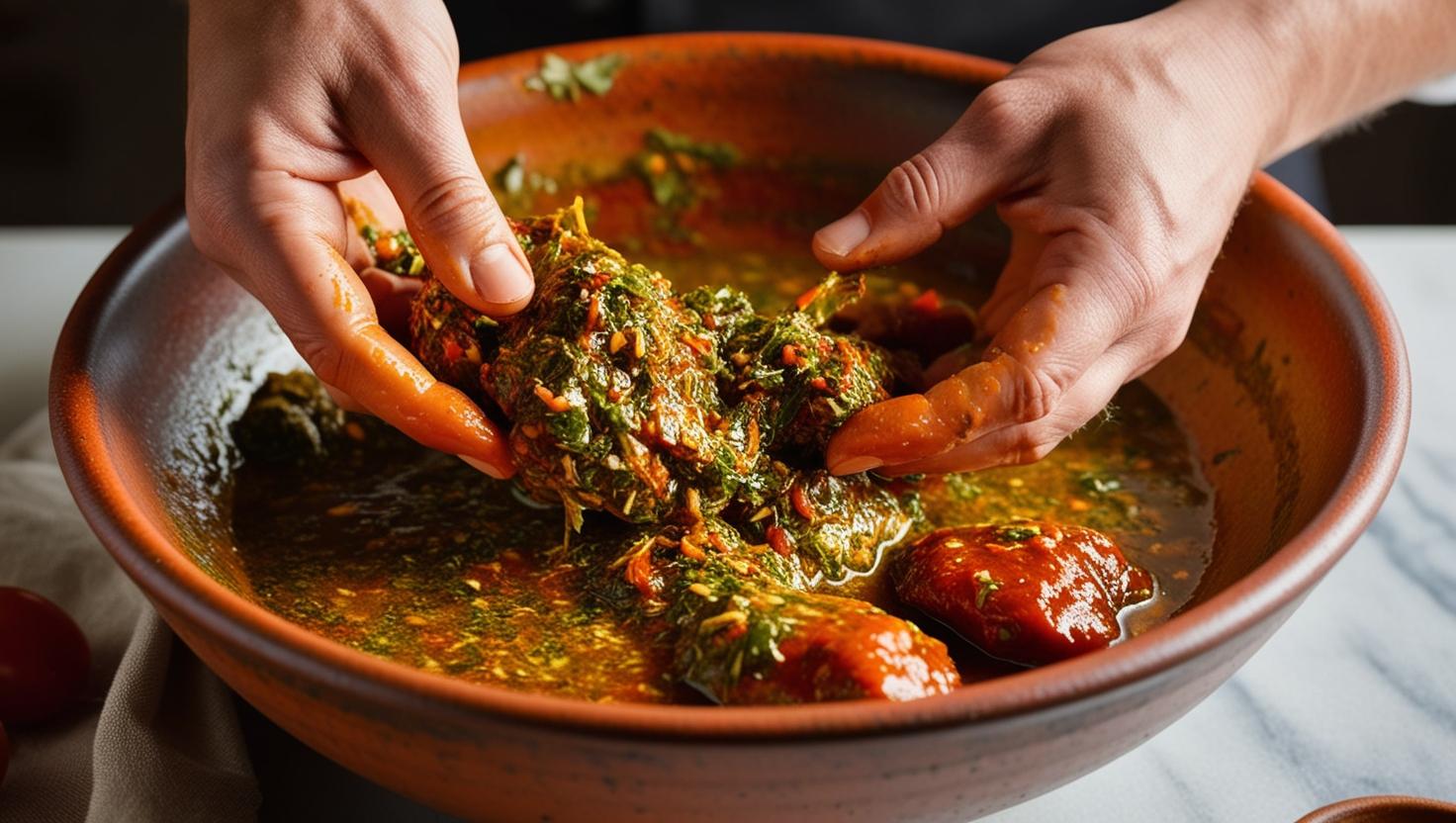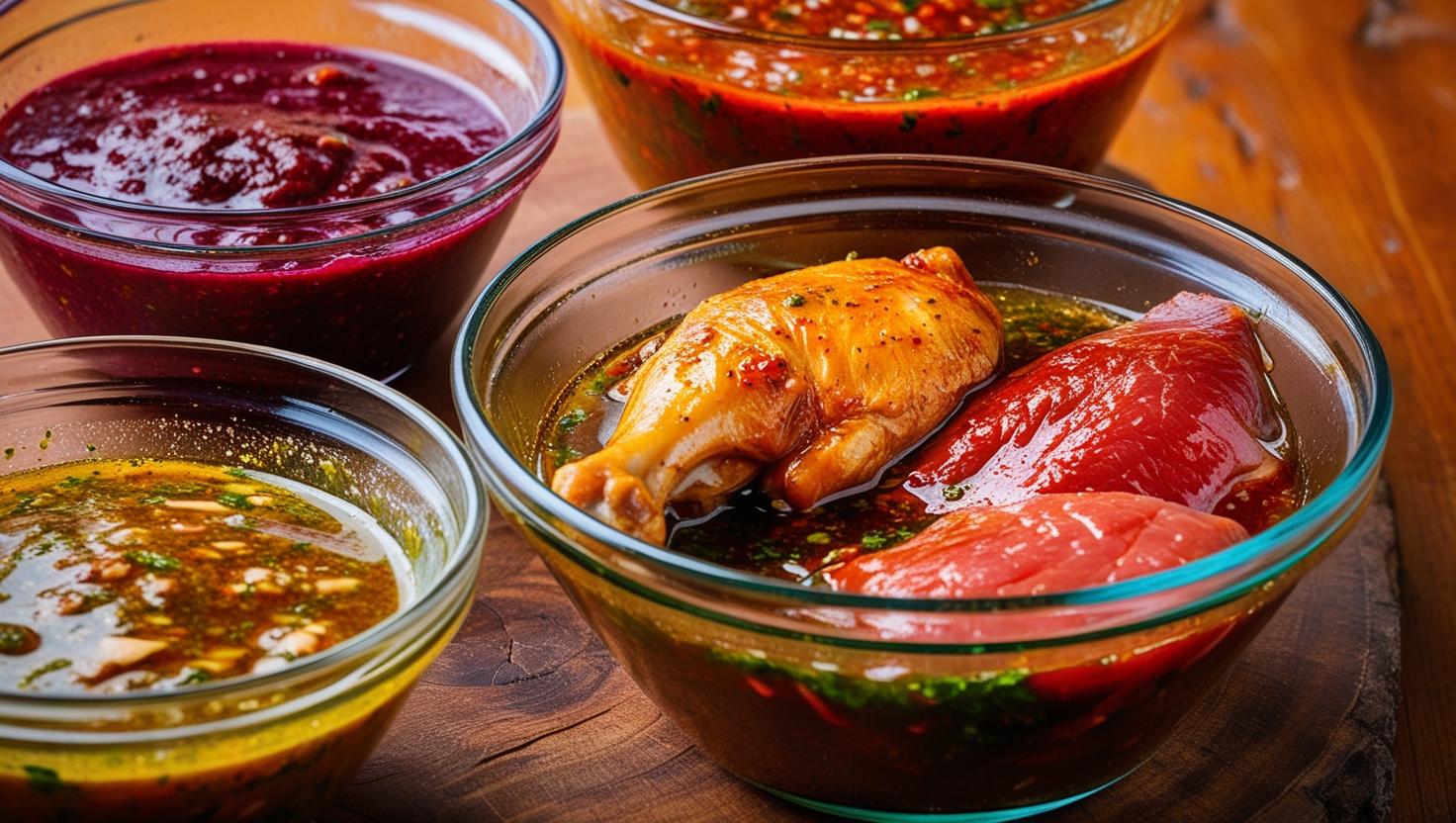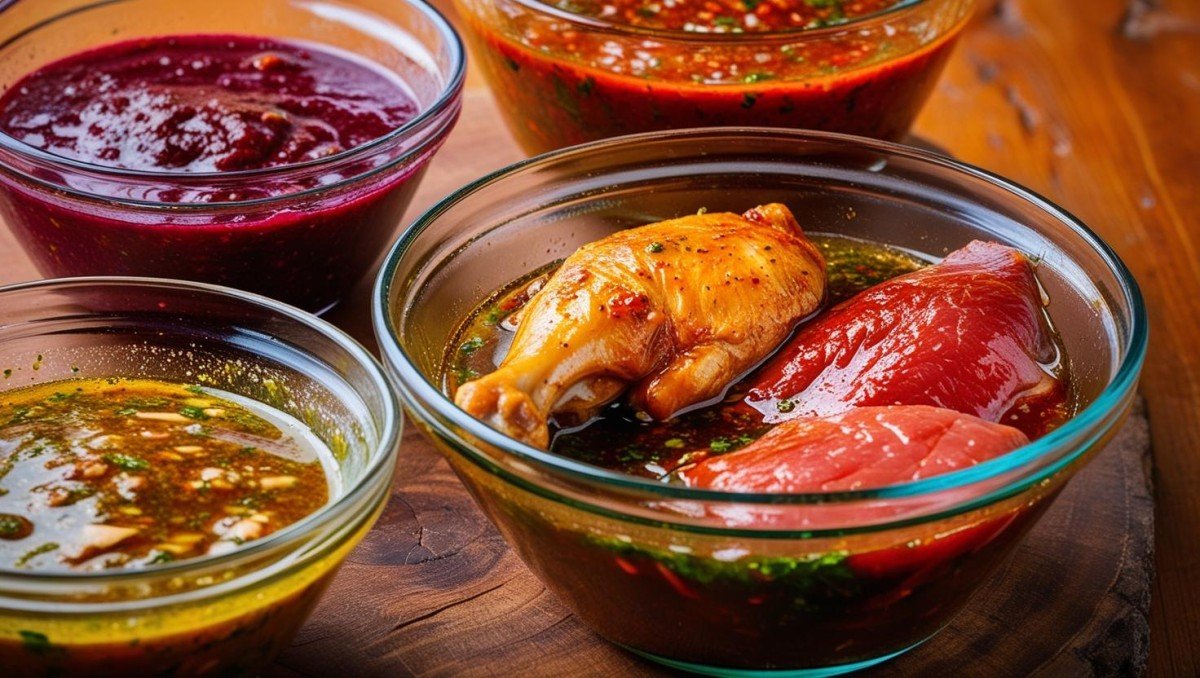Marinades play a crucial role in achieving that delicious, mouthwatering flavor in BBQ. A good marinade can elevate your grilled meats, infusing them with unique taste profiles and tenderizing them to perfection. However, understanding the basics of marinades is essential to master the art of BBQ.

The Purpose of Marinades
The primary purpose of a marinade is to add flavor and enhance the tenderness of the meat. Marinades are typically composed of acidic ingredients like vinegar, citrus juices, or wine, which help break down the tough muscle fibers and connective tissues in meats, making them more tender. In addition to acids, marinades can contain flavorful ingredients such as herbs, spices, oils, and sauces, creating a perfect blend of taste and texture.
The Marinade Process
Marinating is a simple process that involves immersing the meat in the marinade for a specified period. The duration of marinating depends on the type of meat and desired flavor intensity. Larger cuts of meat, such as roasts, require longer marinating times, ranging from a few hours to overnight, while smaller pieces like chicken breasts or shrimp may only need 30 minutes to an hour. It's important to marinate the meat in a non-reactive container, such as glass or plastic, and refrigerate it during the process to prevent bacterial growth.
Experimenting with Marinades
One of the joys of BBQ is the opportunity to experiment with different marinades. You can get creative by combining various ingredients to create a unique flavor profile that suits your taste preferences. Try experimenting with different combinations of herbs, spices, and sauces to discover your signature marinade. Remember to keep a record of your marinade recipes and cooking times to replicate your successful creations in the future.

From Sweet to Spicy: Exploring Flavors for Perfect BBQ
One of the most rewarding aspects of mastering the art of BBQ is experimenting with different marinades to create unique and mouthwatering flavors. Whether you prefer a sweet and tangy profile or a fiery and spicy kick, there is a marinade out there to suit your taste buds. Let's dive into some popular flavor profiles and ingredients to elevate your BBQ game!
1. Sweet and Savory:
The combination of sweet and savory flavors is a classic choice for BBQ enthusiasts. To achieve this profile, consider using ingredients like honey, maple syrup, brown sugar, soy sauce, Worcestershire sauce, or balsamic vinegar. These ingredients add that perfect balance of sweetness and depth to your marinades, creating a mouthwatering caramelized crust on your BBQ meats.
2. Spicy and Tangy:
For those who prefer a little heat in their BBQ, exploring spicy and tangy marinades is the way to go. Ingredients like hot sauce, chili powder, cayenne pepper, lime juice, vinegar, and garlic inject bold and zesty flavors into your meats. This flavor profile is ideal for those who enjoy a bit of a kick and need to awaken their taste buds!
3. Smoky and Robust:
Creating a smoky and robust flavor for your BBQ can transport you straight to the outdoor grill. To achieve this, incorporate ingredients like smoked paprika, cumin, chipotle peppers, molasses, coffee, or dark beer into your marinades. These ingredients infuse your meats with a deep, rich, and smoky taste, taking your BBQ to new heights of deliciousness.
Marinating Magic: Techniques and Tips for Tenderizing Meat
Marinades are an essential component in achieving tender and flavorful grilled meats. Whether you're a seasoned barbecue enthusiast or just starting out, mastering the art of marinades can elevate your BBQ game to the next level. In this section, we will explore various techniques and tips that will help you achieve flawlessly tender meat every time.
Choose the Right Marinade
The key to a successful marinade lies in selecting the right combination of flavors and tenderizing agents. A good marinade typically consists of an acidic ingredient, such as vinegar or citrus juice, which helps break down the tough fibers in meat. Additionally, you can enhance the flavor by adding herbs, spices, oils, and even a touch of sweetness. Experiment with different marinade recipes to find your signature blend, keeping in mind that delicate meats like fish and chicken require shorter marinating times compared to beef or pork.
Proper Marinating Techniques
To ensure your meat fully absorbs the flavors and becomes tender, proper marinating techniques are essential. Start by placing your meat in a glass or plastic container, allowing enough space for the marinade to evenly coat all sides. Avoid using aluminum containers as they may react with acidic marinades. Gently pierce the surface of the meat with a fork to allow the marinade to penetrate deeper, especially for thicker cuts. Once your marinating setup is ready, cover the container and refrigerate for the recommended time, turning the meat occasionally to distribute the flavors evenly.
Marinating Time and Safety
Marinating time depends on the type and size of the meat. While some meats like steaks and chops may require only 30 minutes to an hour, tougher cuts like roasts or ribs benefit from marinating overnight or even up to 24 hours. However, it's crucial to follow food safety guidelines during marinating. Keep the meat refrigerated at all times, and if you plan to use some of the marinade as a sauce or basting liquid, set it aside before adding the raw meat to avoid any cross-contamination.
Beyond the Grill: Taking Marinades to New Culinary Heights
Marinades are the secret weapon in any BBQ enthusiast's arsenal. They not only add flavor, but also tenderize tough cuts of meat and create a delightful caramelized crust on the grill. While traditional marinades like teriyaki and barbecue sauce are popular choices, there is a world of possibilities to explore when it comes to elevating your marinating game.
One way to take your marinades to new heights is to experiment with different types of acids, such as citrus juices, vinegars, and wines. Acids help break down the muscle fibers in meat, making it tender and allowing the flavors to penetrate more deeply. For example, a marinade with lemon juice and champagne vinegar can add a tangy and bright flavor profile to chicken or fish.
Another option is to incorporate unusual herbs, spices, and oils into your marinades. Think beyond the basic salt and pepper and explore flavors like fresh basil, smoked paprika, or even sesame oil. These ingredients can add complexity and depth to your marinades, transforming ordinary grilled meats into extraordinary culinary experiences.
Lastly, don't underestimate the power of marinating time. While a short marinating time can still impart flavor, longer marinating times can lead to more intense and deeply infused tastes. It's a good idea to marinate tougher cuts of meat, like flank steak or pork shoulder, overnight, allowing the flavors to fully develop and resulting in a juicier and more tender final product.



